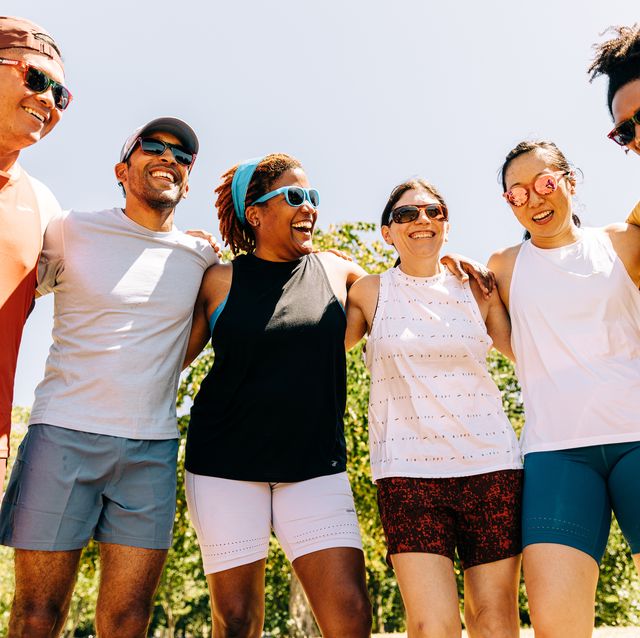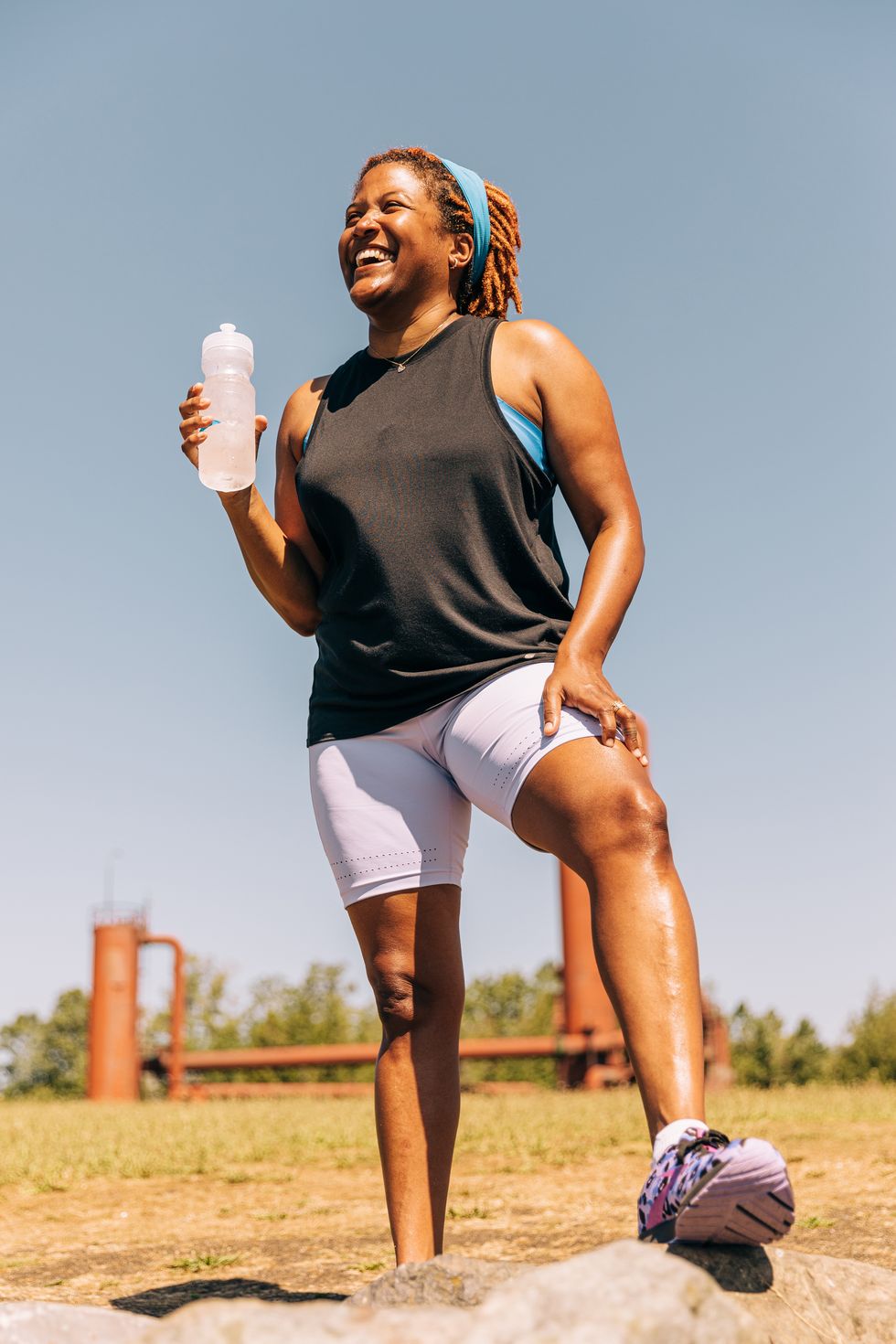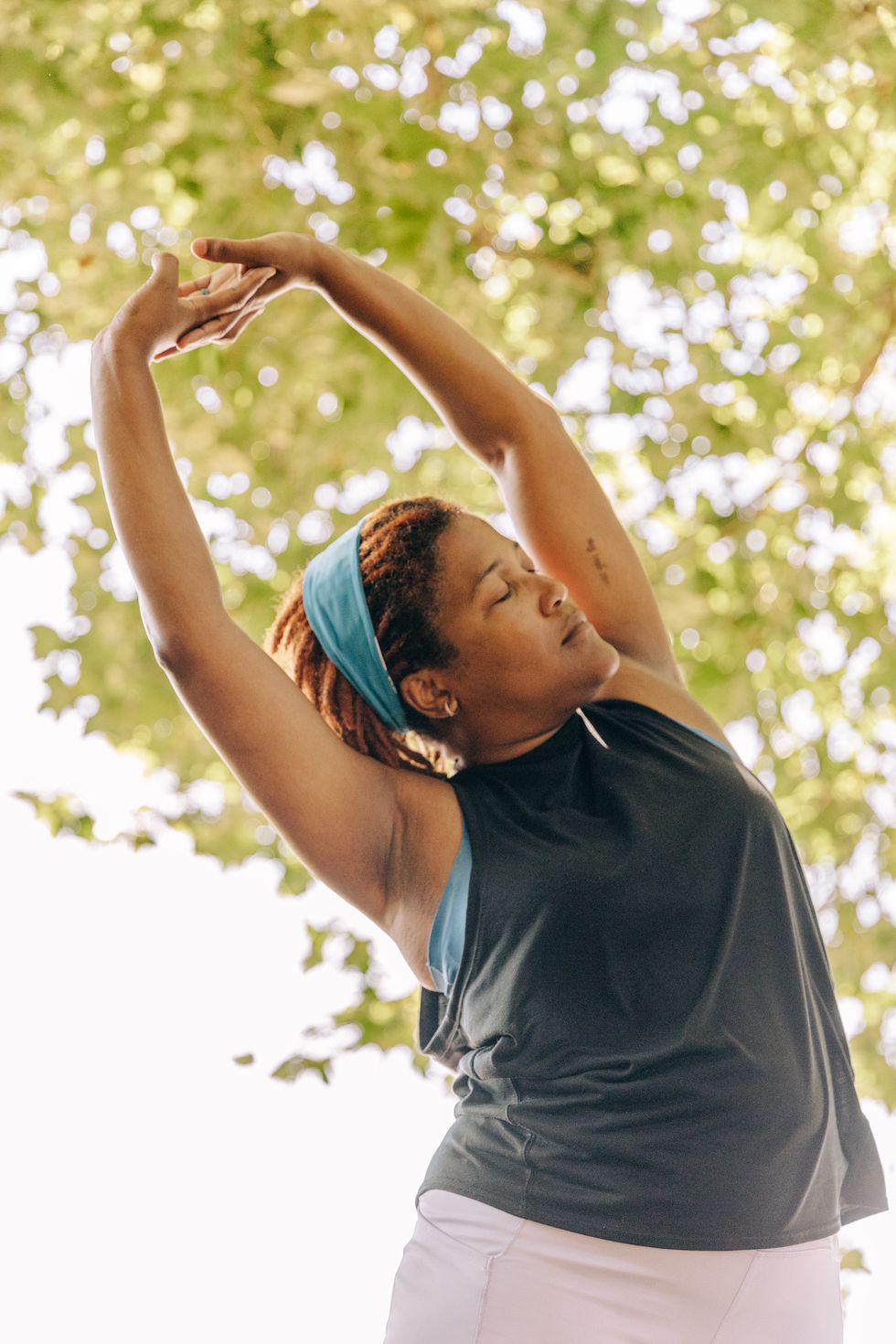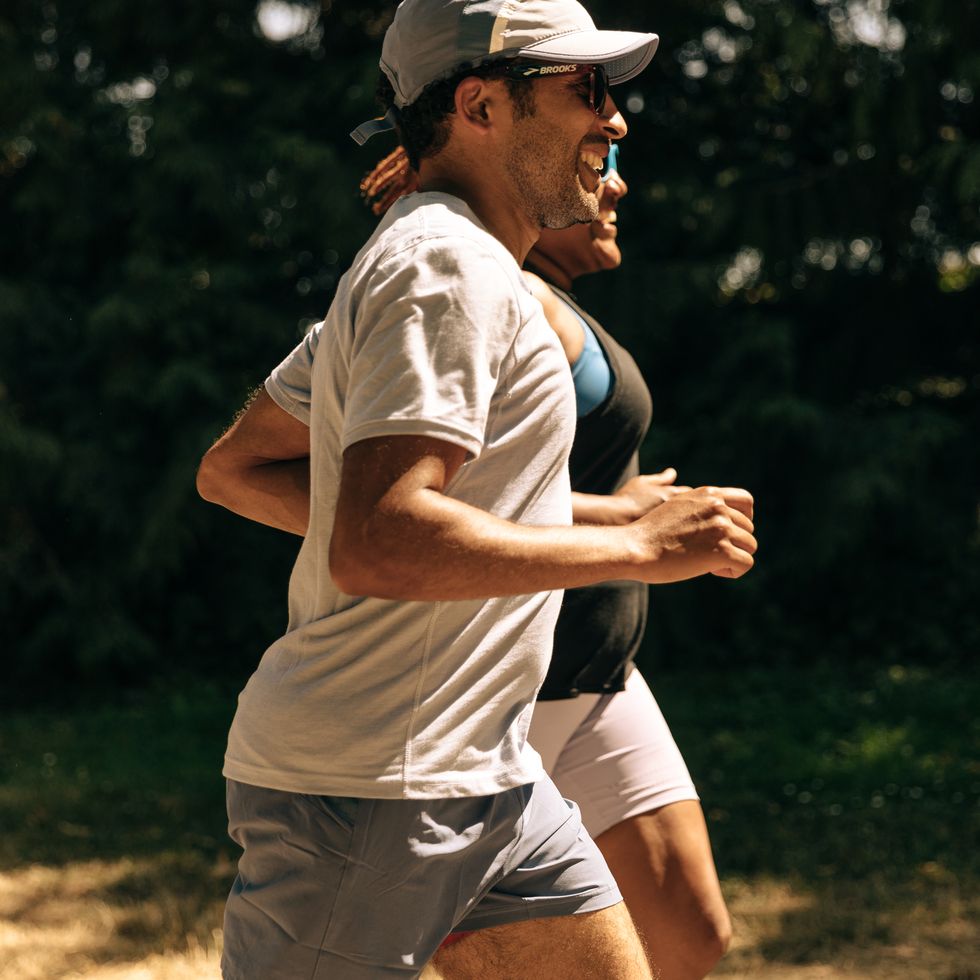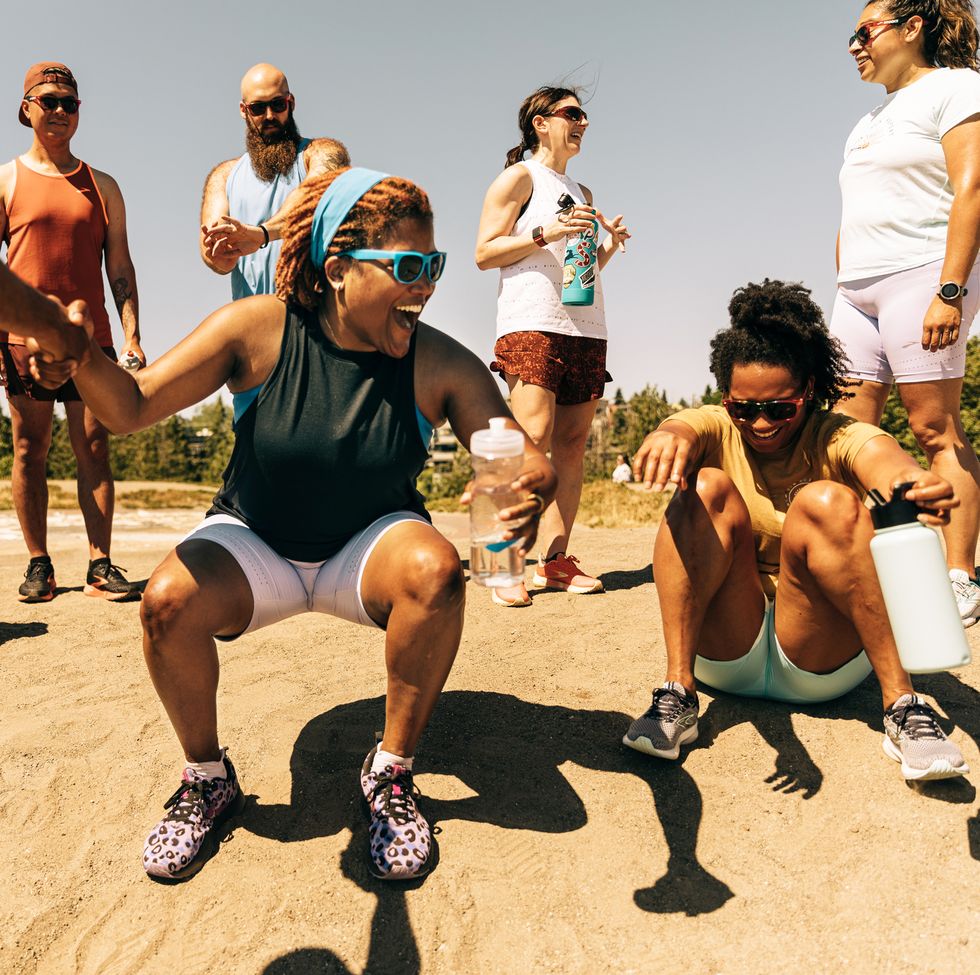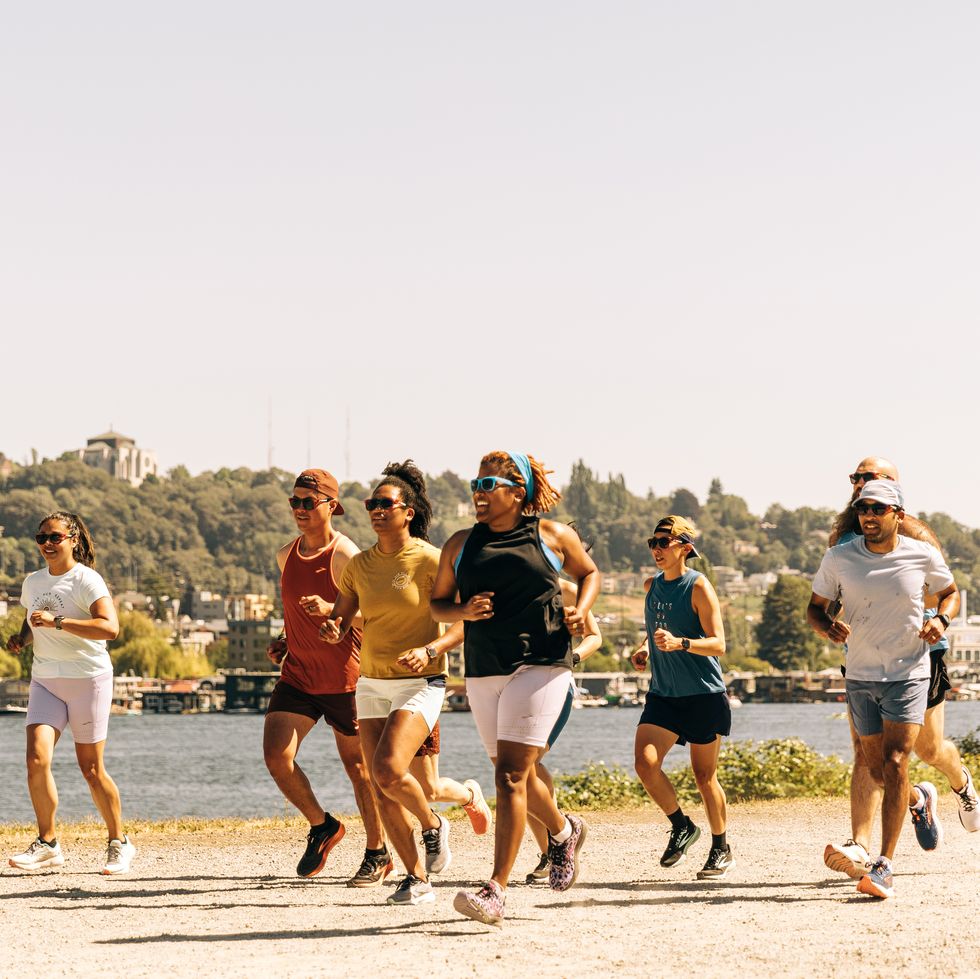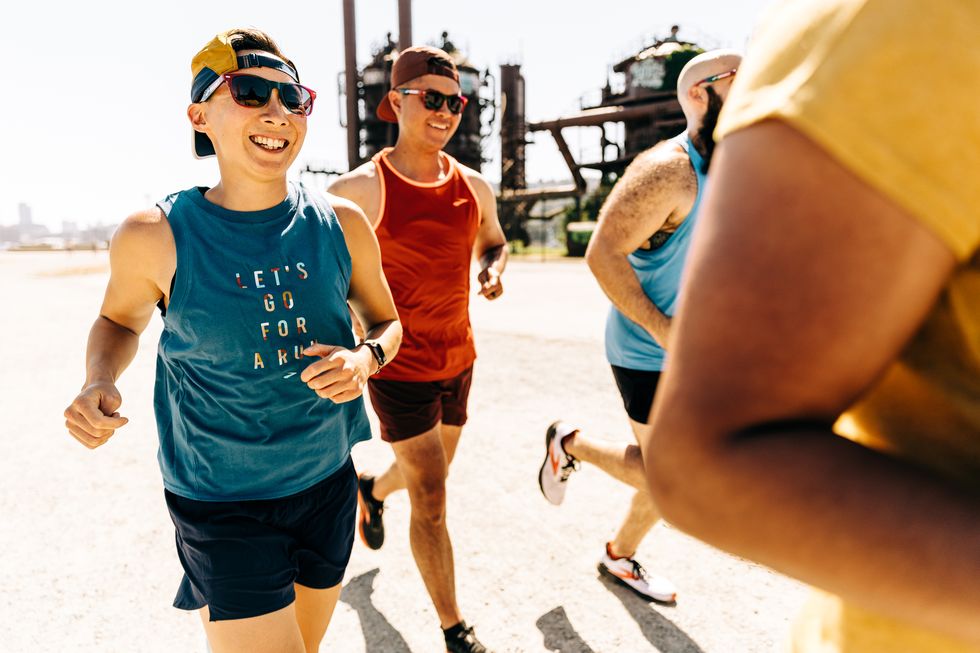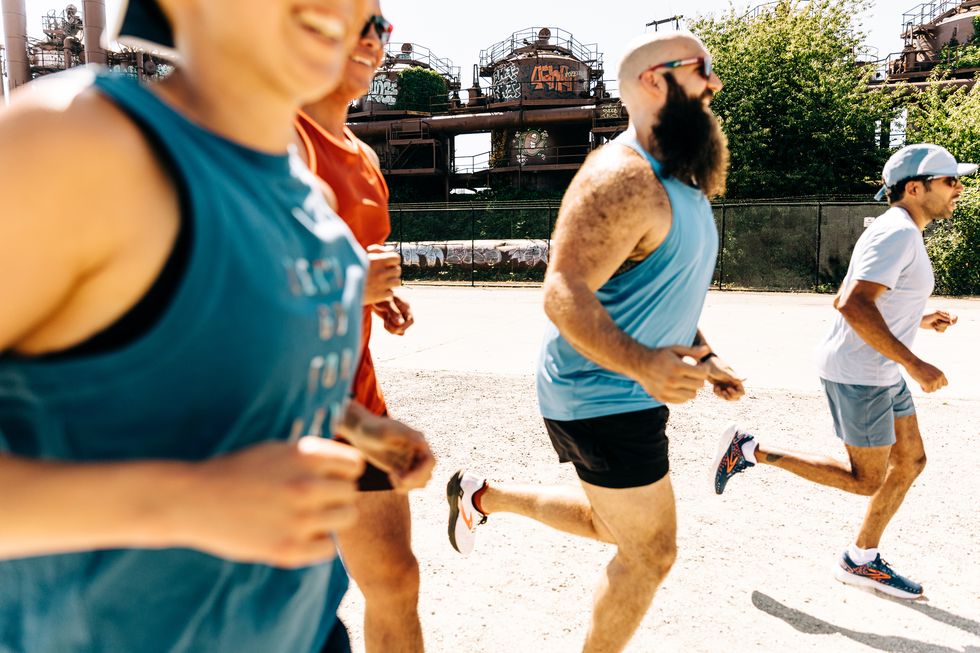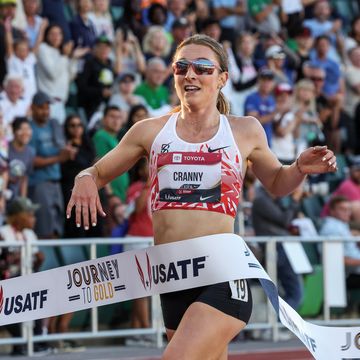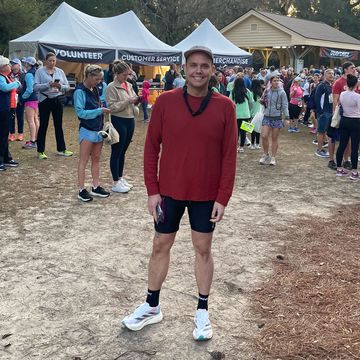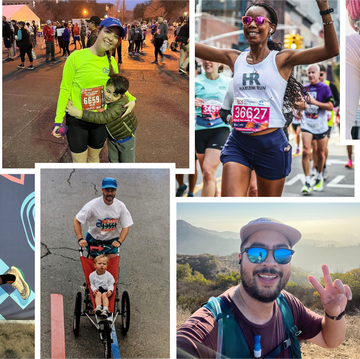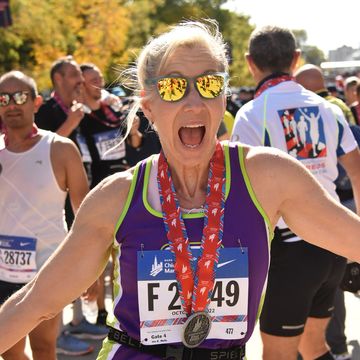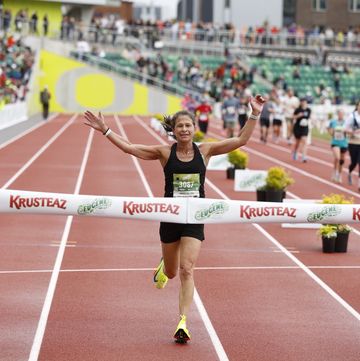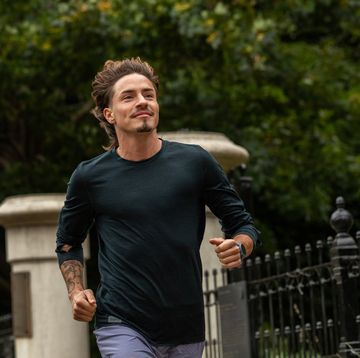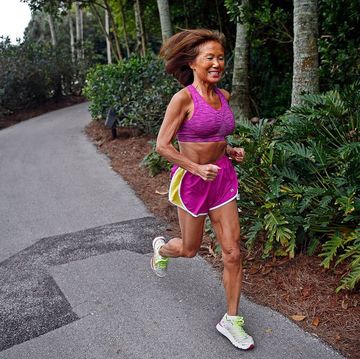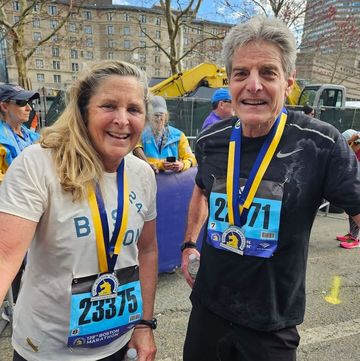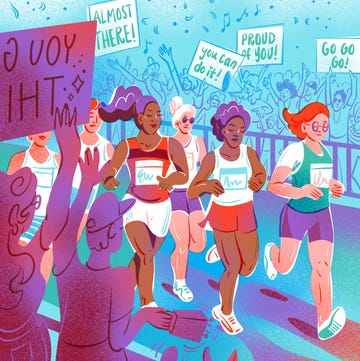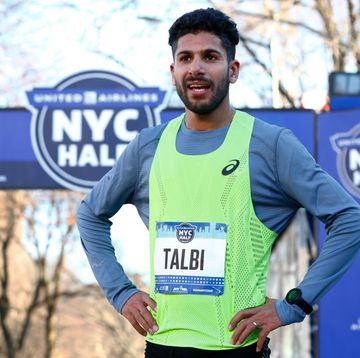Running has the unique power to help us move forward and overcome life’s obstacles so we can either stay the course or accomplish amazing things. It has the power to make us persistent. In this series, Unstoppable Voices, Runner’s World has partnered with Brooks Running to expand the platforms of ordinary runners: Run Happy Advocates who use their voices and their feet to make life better for themselves and others.
For many people, running begins as a way to de-stress, get fit, or spend time with health-conscious friends. For Alison Mariella Désir, it started with doomscrolling.
In 2011, as a recent college graduate helping her father with Lewy body dementia (a degenerative mind and body disease), Désir began spending hours on social media, looking at posts from friends who seemed to be building glamorous, meaningful lives. Unemployed and watching her father's condition worsen, depression set in and she felt unable to pull herself out of the funk. Luckily, she ended up on the right profile at the right time.
“There was a guy who was training for a marathon, and my first thought was: I didn’t know Black people ran marathons,” said Désir. “But he talked about how it was changing him physically and mentally, and that really got my attention, so I reached out to him.”
They connected, and she soon made a New Year’s resolution to start running. The sport quickly began to change her for the better, both physically and mentally—especially the latter.
“I found out how capable I am,” she said. “I couldn’t do anything about my father being sick, but I could control my pace, and how long I ran, and where I went. I regained control of my body and a sense of ownership of who I am. Along with going back to therapy, that helped me get my life back on track.”
As her love for running deepened, Désir felt inspired to take on another new challenge, one that would be much bigger: affecting other people’s lives in the same way.
Becoming a Running Advocate
As part of training for her first race—a marathon in San Diego in June 2012— Désir started fundraising, which gave her a community focus. Tapping into a broader running scene also highlighted a major concern: Her initial belief about Black people being scarce in marathons was proving, unfortunately, to be true.
“Often, I was one of the only, if not the only, Black person in my training group,” she said. “But I also knew this group was saving my life, so no matter what, I needed to show up.” When she ran the marathon, part of the route went through a neighborhood clearly struggling with a lack of resources, and Désir became even more aware of the intersection between running and institutionalized racism.
Just after finishing the race in San Diego, she returned to her home in Harlem, New York, and started a blog about the experience of running a marathon. Although she jokes that no one actually read it, writing the blog gave Désir a new passion for making running a more diverse, inclusive sport. In late 2013, she launched her group, the Powdered Feet Run Club, a name that derives from a Haitian Creole expression that describes someone so active, you never see them, just the footprints of where they've been in powder. For five months, Désir was the only person to show up to club meetings—but she didn’t quit trying. Eventually, the group came together and one of the early participants, Amir, became her husband.
The effort kept growing, attracting others who shared her passion and ideas about improving the running scene. A year after inception, having been renamed Harlem Run, the group had over 100 members, and different pace groups to ensure that everyone—from walkers to sprinters, college kids to retirees—could participate.
“Getting people to show up was the major step,” said Désir. “I knew that if I could get people like me, Black and brown people, to show up, they would also experience this transformation.”
It turns out, showing up was just the starting line.
Community Boosting Near and Far
Désir also founded Run 4 All Women, a philanthropic running group focused on grass-roots activism, which to date has raised over $150,000 for women’s health organizations and $270,000 for initiatives that build power and civic engagement in Black communities. Plus, she's cochair of the nonprofit Running Industry Diversity Coalition geared toward increasing employment, leadership, and ownership positions as well as inclusion, visibility, and access for Black, Indigenous, and people of color (BIPOC).
Most recently, Désir created a series of events called Meaning Thru Movement that provide education and resources for improving mental and physical health, especially for the BIPOC community.
“All of us struggle with mental health to some extent, but there are very few spaces where you can talk about things like anxiety and depression or trauma and racial bias,” she said. “These events put together a 5K run for all levels, along with meaningful conversations around mental health and movement.”
In addition to her other work, Désir is a Brooks Run Happy Advocate, embracing the opportunity to be part of a team of diverse people who have all come to running for different reasons, yet are united by a shared love of the sport.
Although she moved to Seattle with her husband and 3-year-old son in January 2021—and promptly started the Seattle Running Collective—Désir goes back to New York often and is heartened to see Harlem Run still going strong. She’ll soon expand her community to an even greater degree when her first book, Running While Black, is published in October 2022 by Portfolio. A call to action, it’s a project born of her grief over the murder of Ahmaud Arbery and her belief that the running industry and individual runners can do much more to make the sport safer for BIPOC runners.
For Désir, running is inextricably tied together with racial justice, awareness, and mental health. She believes the kind of community-building boost she needed to break her doomscrolling is likely to help others stuck in the same cycle. Most of all, she’s working to create a richer and more inclusive running scene.
“I see Harlem Run and Run 4 All Women, and these other projects, as not just changing individual lives, but also the landscape of running,” she said. “We are all making mental and physical health accessible to everyone, and I've seen in my own life how powerful it is when people start to move and take better care of themselves. It's really transformative. I think I'm on this earth to make sure that as many people get access to movement and mental health resources as possible.”
Elizabeth Millard is a freelance writer focusing on health, wellness, fitness, and food.
